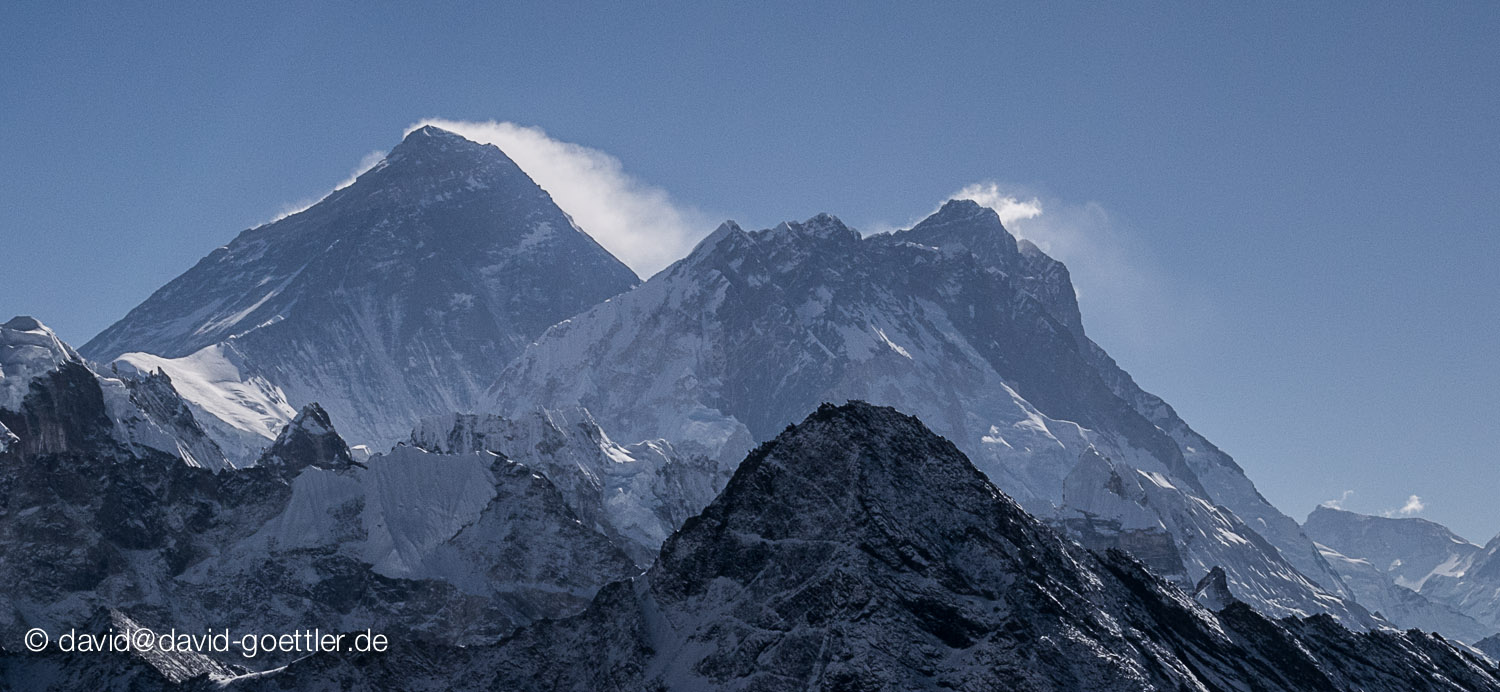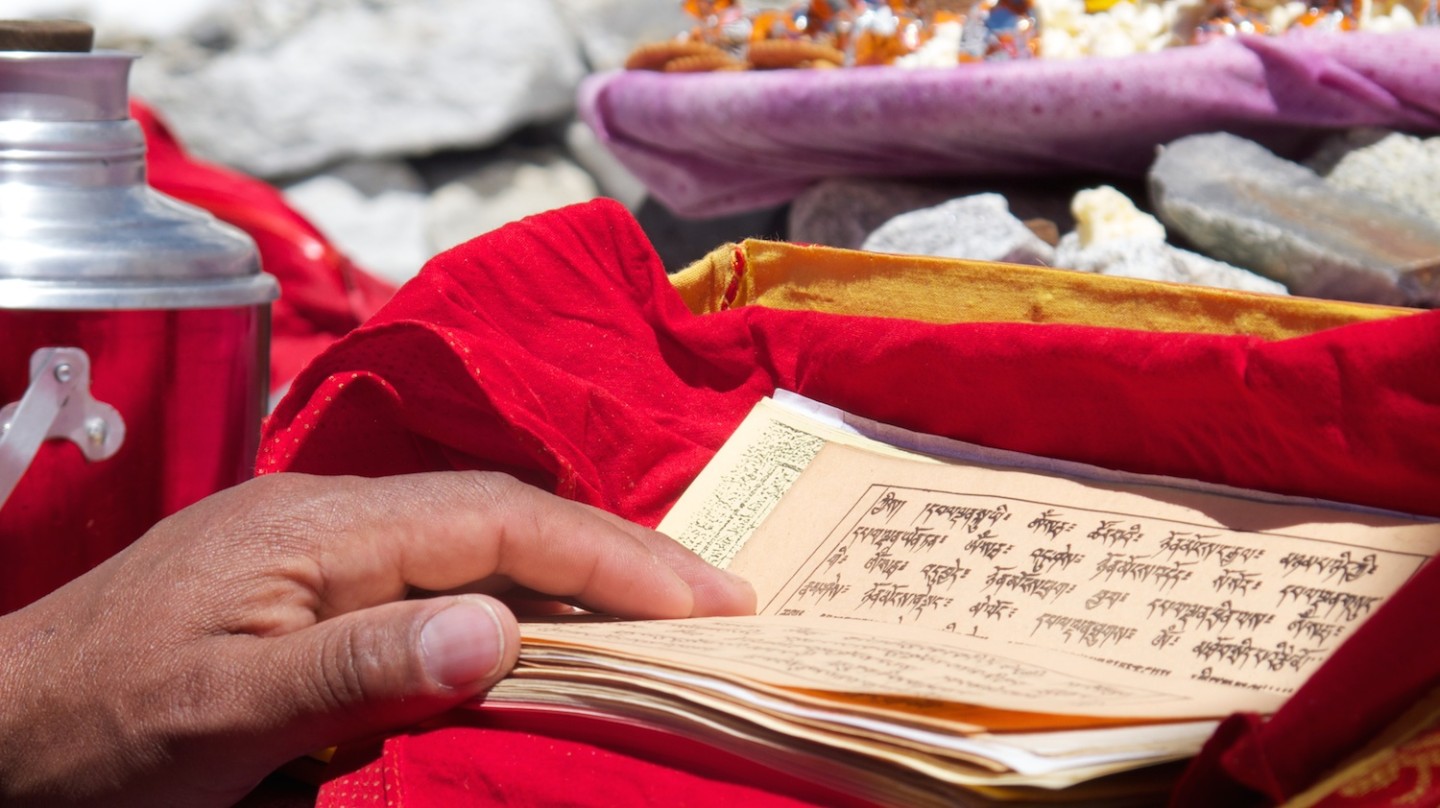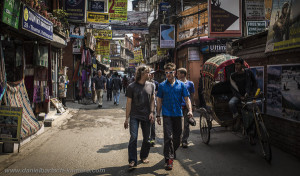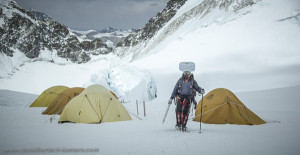My personal view and thoughts about Everest 2014.
This year before I had even reached Everest Base Camp, my expedition was over.
It feels kind of strange and unreal. I was sitting on Island Peak doing my acclimatisation when the news of the accident broke. My plan was to try to climb Everest without supplementary oxygen and without personal climbing Sherpa.
What happened was a tragedy.
On the 18th of April a huge avalanche killed 16 Sherpa who were carrying loads up to camp 1. They were carrying loads for the commercial expedition teams they worked for.
There is no doubt that without the work of the Sherpa only 1% of the so called „Everest climbers“ would be able to reach the summit.
There is no doubt that they deserve respect for their work and effort.
There is no doubt that after this tragedy (which could have happened any year, and, for as long as there are seracs on mountains, could happen again at any time) there should be a time of silence and thought to honour those who died. Nothing will bring them back to life and now, all we can do is think of supporting their families. ( if you would like to support the families of the lost sherpas check out these websites www.thejuniperfund.org, www.sherpasfund.org and www.alexlowe.org )
But I also want to share here my doubts and early thoughts about the general situation; about the relationship between the Sherpa and the mountaineers, or the climbers, or the clients, or whatever you want to call them.
I believe that the Sherpa know how dangerous and potentially deadly their work on mountains like Everest can be. They are not uneducated, and they are not slaves to the big teams or to individual climbers like myself.
Relative to the vast majority of Nepalis, they earn a lot of money; they become local heroes in the Khumbu, and in the rest of Nepal. They return year after year to climb Everest. If there weren’t clients who were prepared to pay expedition teams to climb Mt Everest (or other 8000m peaks) not a single climbing Sherpa would have this type of high earning work. None of them would be able to send their children to study in Kathmandu or the United States.
Every factory worker in China and Malaysia, producing our clothes, our shoes and our electronic devices for continuously decreasing prices, has significantly less choice and works in significantly worse working conditions than the Sherpa on Mt Everest. It just so happens that as the distance between consumer and worker increases, our conscience and direct sense of responsibility are appeased and diminished.
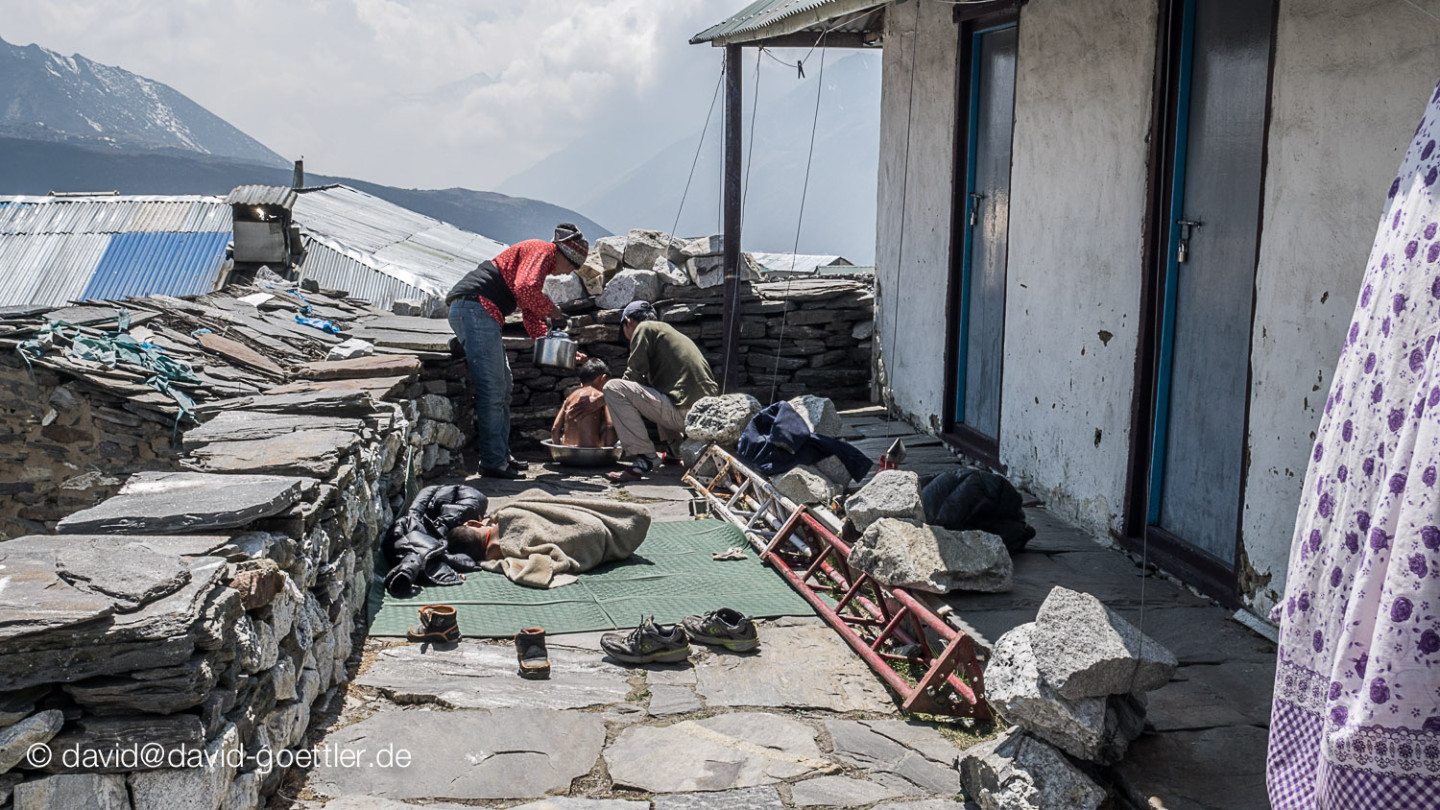
Tenzing Sherpa, the owner of the lodge in Chukung where I have been staying, decided not to become a climbing sherpa because he felt it was too dangerous. Instead he owns two lodges and works hard to send his children to boarding school in Namche and Kathmandu. He has a good life and is happy, but he won’t ever earn as much as a climbing Sherpa nor gain the hero status that multiple Everest summiters do. Tenzing’s story makes me feel that the Sherpa who work on Everest are neither slaves nor are they forced into their jobs by lack of other options or poverty.
One final thought that bothers me given recent events, is the growing feeling that there is a small group of Sherpa who feel that they „own“ Mt Everest. They are behaving like Kings and rule makers, forcing others to adopt a stance by using threats of reprisals and violence. For me, mountains belong at most to the local gods or to mother nature herself, but not to human beings. All of us as climbers should treat mountains with respect and tread humbly and carefully. Surely that is simply common sense…isn’t it?

My plan was to climb without the help of any personal climbing sherpa; of course the fixed ropes on the mountain and the route through the ice fall are placed by Sherpa and I would have used those, but beyond that I planned to climb alone. When the events of this year unfolded and it seemed that there would be no fixed route through the ice fall, nor fixed ropes higher up, of course I thought of the possibility of climbing with one friend to see how far we could get. It was an exciting prospect, but we asked the Sherpa working with the team whose base camp I was using, and they quite clearly said that if we chose to do that, they would suffer the consequences. It had been made clear to them that even Sherpa who allowed anyone to stay and climb, would be the victims of at best ostracism and at worst violent reprisals, to them and to their families and villages.
So, that is the main reason why I made the decision to cancel my climb. Of course, I didn’t want to be responsible for the potential consequences my climb could have on Sherpa, who, already broken by the grief of their losses were told they would be held accountable for my actions. Now, it may be that there are some climbers staying to attempt an ascent; but at the time I made my decision it was clear to me that to stay was not the right choice.
It leaves me with a great deal of uncertainty for the future of Everest. I truly hope that in years to come some sort of mutual respect between the Sherpa, independent climbers, expedition operators and „Everest clients“ can be reached. A respect of the mountain, of each other, of each individual’s choice of role and of each individual’s decision to be there and to climb there. That is what I hope for.
